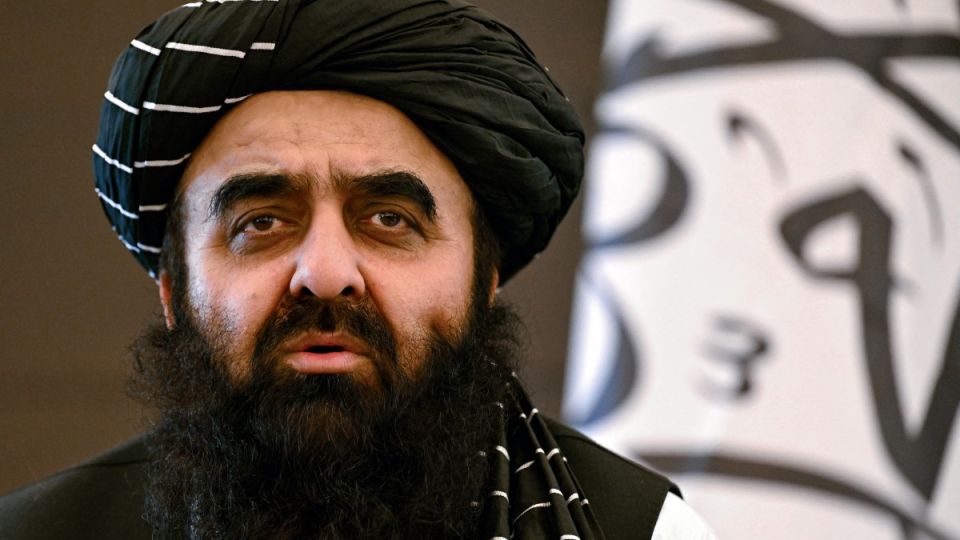October 13, 2025
NEW DELHI – Afghanistan’s Foreign Minister Amir Khan Muttaqi held a second press conference in New Delhi on Sunday, inviting women journalists after widespread outrage over their absence in his previous media interaction. The visit, which is part of the Taliban’s efforts to re-engage with India and the region, has been overshadowed by criticism from journalists, political leaders, and women’s rights advocates over the exclusion of female reporters from the initial briefing.
Muttaqi, who arrived in India on Thursday for a week-long visit, defended the earlier exclusion as an unintentional “technical issue.” “It was on short notice, and the participation list was very specific. There was no intention to exclude anyone,” he told reporters. “No one’s rights—whether men’s or women’s—should ever be denied.”
The Afghan foreign minister’s first press conference on October 10 had sparked condemnation after photos revealed an all-male gathering, triggering sharp responses from opposition politicians and activist groups in India. Several opposition leaders blamed the Indian government for allowing the event to take place on Indian soil without ensuring inclusivity.
The Ministry of External Affairs had clarified that it had no role in organising the initial press meet.
Congress leader Rahul Gandhi criticised the government’s silence, saying, “Allowing the exclusion of women journalists sends a message to every woman in India that their rights are not defended.” Similarly, Congress’s Priyanka Gandhi Vadra and Trinamool Congress MP Mahua Moitra called the exclusion “shameful” and demanded an apology from the government.
During today’s more inclusive press interaction, Muttaqi sought to highlight progress in Afghanistan-India ties. He announced upcoming flights connecting Amritsar and Afghanistan and discussed expanding student exchange programmes, including with Deoband Darul Uloom.
“We talked about trade through the Chabahar port and requested India consider reopening the Wagah border route, which is Afghanistan’s closest trade link,” Muttaqi said. He also raised the issue of Afghan detainees in India, seeking their facilitated return.
On the sensitive topic of women’s education, Muttaqi claimed, “Women and girls in several parts of Afghanistan are already studying. Restrictions exist only in specific areas. We do not oppose education; education is not haram.”
When questioned about the killing of Indian photojournalist Danish Siddiqui during the 2021 Taliban offensive, Muttaqi expressed regret over all lives lost and asserted, “In the last four years, no reporter has been harmed.”
Afghan Foreign Minister Amir Khan Muttaqi described Afghanistan-Pakistan relations as complex but without enmity toward the Pakistani people, citing “a few elements” causing problems.
He mentioned Taliban operations against “Pakistani mischief” and stressed dialogue as the preferred path, while warning of other options if talks fail. Declaring Afghanistan free after decades of foreign presence, Muttaqi dismissed instability claims, calling the country peaceful and open for business. He denied Taliban control over Tehrik-i-Taliban Pakistan bases, attributing them to previous regimes.
Highlighting the rugged, uncontrollable border, he urged Pakistan to address internal issues. While Muttaqi’s visit aims to normalise regional ties, controversy over the exclusion of women journalists highlights ongoing human rights challenges.


